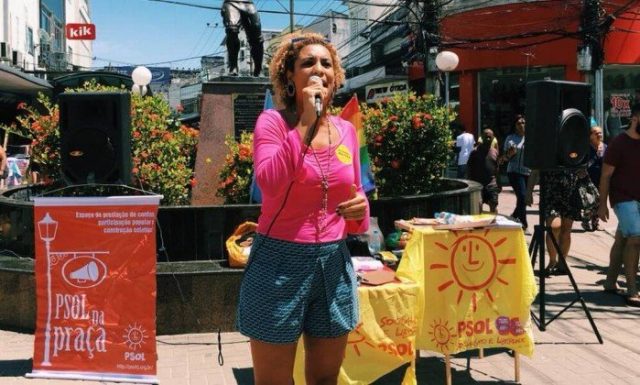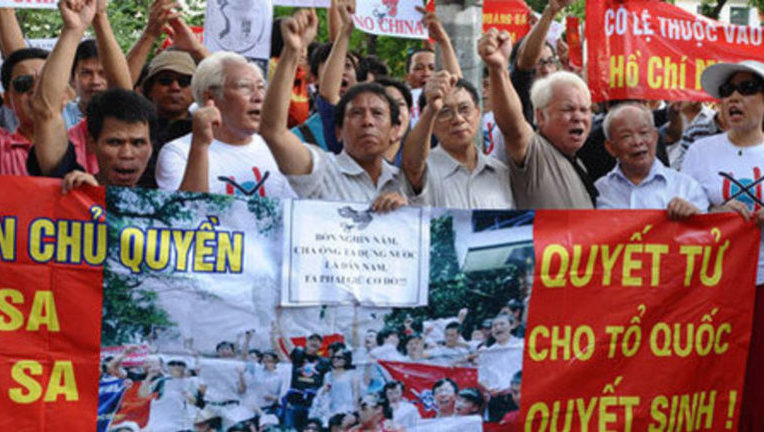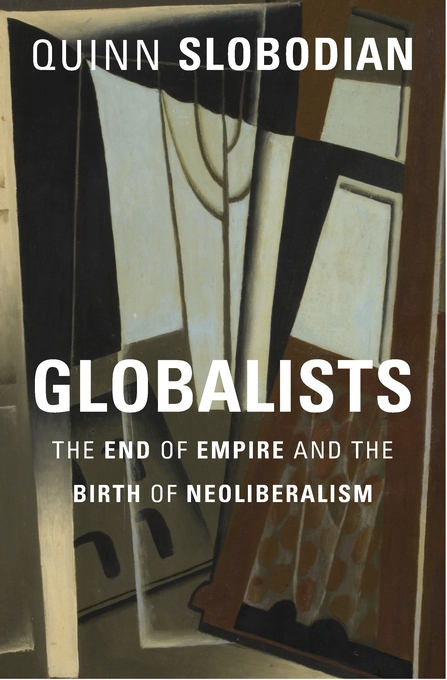Current IssueFrom the Editors
After protests and occupations temporarily shut down ICE offices, Donald Trump suffered a significant political defeat when he was forced to reverse himself on separating immigrant children from their parents after they were arrested at the border. By and large, people were horrified at the separation of kids from their families and at the creation of what were basically prison camps for children. Polls showed that only about a quarter of the U.S. population supported Trump on this child-hostage policy, though about half of Republicans did. Walkouts Teach U.S. Labor a New Grammar for Struggle
Like the Arab Spring, the U.S. “Education Spring” was an explosive wave of protests. Statewide teacher walkouts seemed to arise out of nowhere, organized through Facebook groups, with demands for increased school funding and political voice for teachers. Though the walkouts confounded national media outlets, which had little idea how to explain or report on the movements, for parent and teacher activists who have been organizing against reforms in public education over the past four decades, the protests were understandable, if unexpected. What was surprising was their breadth of support (statewide), their organizing strategy (Facebook), and their breathtakingly rapid spread. What’s Left of the Brazilian Left?Reasons for Cautious Optimism from the Landless Workers Movement
In May 2017, Left politics in Brazil were pretty bleak. It was almost a year after the impeachment of President Dilma Rousseff of the Brazilian Workers Party (PT), whose ousting from power brought along with it an onslaught of austerity policies.2 "Marxism and Freedom" After Sixty Years, For Yesterday and Today
It is the sixtieth anniversary of Raya Dunayevskaya’s Marxism and Freedom, a work both of its time and ahead of its time. Reconnecting Reform and Revolution: Socialists in the Mist
If one thing was clear coming out of the New York City Democratic Socialists of America’s May 5 convention, it was that most delegates uniformly consider themselves socialists and aspire to build an anti-corporate resistance movement nationwide. So far, so good. Black Neighborhoods MatterAn Interview with Lawrence Brown on Community Trauma and Healing
Lawrence Brown associate professor of public health in the School of Community Health and Policy at Morgan State University. He is the grandson of sharecroppers who lived in the Mississippi Delta and a native of West Memphis, Arkansas. He is a historian, critical geographer, and political economist who sees public health from a critical, interdisciplinary perspective and advocates for holistic approaches to healing the Black communities of Baltimore. His book The Black Butterfly: Why We Must Make Black Neighborhoods Matter (Johns Hopkins Press) is forthcoming. Battleground SeattleA Clash of Classes and a Brewing Perfect Storm
Inequality Was Increasing Before Trump
The Federal Reserve Board, the bankers’ bank, has put out figures and reports showing that even before the Trump regime, the rich were acquiring a larger share of the nation’s total income and wealth. The September 2017 Federal Reserve Bulletin reports that “the distribution of income and wealth has grown increasingly unequal in recent years.”1 Other government reports show that many continue to live in poverty and lack shelter and an adequate amount of food. Our Passive Society
Sitting alone in my room watching videos on YouTube, hearing sounds from across the hall of my roommate watching Netflix, the obvious point occurs to me that a key element of the demonic genius of late capitalism is enforcing a crushing passiveness on the populace. Socialism as Pacifism
At time of writing, we are still in the dissipating wake of another mass shooting in the United States, this time in a Parkland, Florida, high school. The American people are once again reminded of the ubiquitous threat of violence that characterizes their everyday lives. We are once again confronted with the nauseating reality of a two-party system that defends this violence in word and deed—while providing rhetorical paeans to security, freedom, and safety. Libya under Gaddafi
A CNN report last November about slave auctions in present-day Libya shocked the world.1 The existence of these slave auctions was widely treated as a new development in the country and a result of the chaos that resulted from the NATO-supported overthrow of Colonel Muammar Gaddafi. In truth, however, what CNN discovered is but a surviving remnant of Gaddafi’s regime—the Libyan Arab Jamahiriya—a police state with systematic racism and abuse both of Libyans of sub-Saharan African descent and of sub-Saharan African migrants. Political Visual Narrative
This season’s roundup of nonfiction comics includes self-published and small-press titles as well as noteworthy releases from major trade publishers. Topics covered range from consumer capitalism and imprisoned anarchists to Trinidadian social history and the war in Syria. Each of these titles deploys a distinctive approach to the challenge of folding political themes into visual narrative. In different ways, these books suggest that the forward march of political cartooning continues unabated. What I Saw at the (Political) Revolution
Radical America
Why the United States has not developed a permanent socialist movement has perplexed activists and theorists for more than a century. Paul Le Blanc takes up that query as an activist who wants to see an anti-capitalism mass movement take shape in twenty-first century America. To that end, he investigates some of the moments when the possibility of a significant left presence in the United States seemed at hand. He focuses on what made those movements viable and what thwarted their long-term success. The volume’s fourteen essays were written over a period of thirty years, from 1986 to 2015. Class DOES Matter
Steve Fraser is a weathered veteran of the New Left and many subsequent movements, author of shrewd books on the acquisitive ruling class and also of the outstanding biography of famed left-leaning labor giant Sidney Hillman, among other works. Here he once again ranges far, but also comes close to home, his own personal home space. Labor and the South
More than a hundred years ago, the muckraking journalist Upton Sinclair worked undercover for several weeks in the cattle slaughterhouses of Chicago. The result was his melodramatic but revelatory novel The Jungle, a work Jack London called the “Uncle Tom’s Cabin of wage slavery.” Sinclair’s narrative depicted the brutal working conditions endured by East European immigrants on the killing floor, engaging in back-breaking, dangerous, and tedious labor for subsistence wages. 1968: The Year of Dangerous Living
— Reprinted from New Politics, vol. II, no. 2 (new series), #6, Winter 1989 — Introduction By Martin Oppenheimer “The Year of Dangerous Living” was written for the twentieth anniversary of 1968. The “’68ers” were still young in 1988, in the prime of their lives, and memories were fresh. There was an explosion of protests against campus racism, gay-bashing, and increasing corporatization of universities (including union-busting). These baby-boomers, then hitting the big 4-0, were nostalgic. There was a sense that despite a Republican president, the moment was ripe for new efforts that required a serious appraisal of past campaigns. The 1968 Columbia Rebellion
— Reprinted from New Politics, vol. VI, no. 3, #23, Summer 1967 (printed June 1968) At 4 am on April 30 [1968], my wife and I stood with tears streaming down our faces on the corner of Amsterdam Avenue and 117th Street, watching the last of the Fayerweather Hall sit-ins being tossed into waiting police vans. We were not the only ones crying, nor were the tears merely those of pity or self-pity. There was also anger, frustration, and actual joy. The incredible—and inevitable—had happened; the “Big Bust” had come. Seven hundred and twenty student and faculty protesters were under arrest; more than 130 had been beaten up, some quite badly. The last illusions about what was happening were shed. |
Blogs & On-Line FeaturesA Legacy of Virtue the Government can’t Silence: The Case of Shahidul Alam
The job for media pundits and intellectuals is often to question black and white narratives that are, in reality; washed in greys. But there are other times when things aren’t so complicated. There are times when one side clearly stands for inclusivism, creativity, empathy, mercy, mirth, humor, compassion and an unabashed zeal for the act of living, while the other side represents grim, cynical, self-interested raw power perpetuated by those who use violence to cover their insecurities, fears and incapacity to see that one’s reason for living on this earth has nothing to do with the allure of power and control. The arrest of renowned photographer Shahidul Alam by the Bangladeshi government is one these times. Ecosocialism’s Greatest Challenge: The Color-Line and the Twenty-First Century Ecoleft
Shortly before protesters gathered around the world on the eve of the Global Climate Action Summit, an ecosocialist friend commented on the pointlessness of engaging in more “feel good” marches. Something struck me as horribly wrong about this casual dismissal of mass actions in which we take to the streets to bear witness to the mounting opposition to global ecocide. Life of a Salesman
Marine Le Pen’s partner had just left the country. A Jew of Algerian background, Louis Aliot had been dispatched to Israel to raise funds for the Front National (FN). Indefensible: Idlib and the left
This text was contributed to Freedom by Leila Al-Shami: British Syrian activist and writer, co-author (with Robin Yassin-Kassab) of Burning Country: Syrians in Revolution and War. Leila’s blog on popular struggles, human rights and social justice from an anti-authoritarian perspective can be found here. The 2018 National Prison Strike: A Movement Making its Mark
Why Graduate Unionization Matters Even More in the Age of Janus
With the start of the new academic year underway, students and instructors will again enter into a millennia old relationship built on mentorship, trust and mutual respect. However, this school year, instructors will be walking into a very different classroom not because the this relationship has changed, but because the Supreme Court has signaled it does not politically support the casue of teachers advocating for working conditions that strengthen this bond. French Labor’s Historical Defeat; U.S. Teachers’ Surprising Victories
Brazil’s Racial Capitalism at a Turning PointRising Militarization after Two Decades of Workers’ Party Government

In February, I published an article in the International Marxist-Humanist reporting that the political scene was horrible in Brazil. Five months ago, I had in my mind how fascism was growing quickly under the hegemony of identity politics, especially with social movements’ fragmentation, and the increase of anti-communist thought, with slanders against Marx as totalitarian, Eurocentric and colonial. I said that all of this, in addition to the legacy of almost 15 years of Workers’ Party government that ended via an institutional coup d’état in 2016, was leading to the destruction – ideological and material – of the left. Clever Corporate Criticism of U.S. Schools - by Gerald Coles
Shenzhen Jasic Technology: Towards a Worker-Student Coalition in China
Last month students and recent graduates from more than a dozen mainland Chinese universities stood up in solidarity support with workers of Jasic Technology, a private company listed on the Shenzhen Stock Exchange. The student activists include those from the Peking University, Tsinghua University, Nanjing University, and Sun Yat-sen University. They wore t-shirts with the slogan “unity is power” printed in bold red. They produced videos of public speeches and peaceful demonstrations in front of the Jasic factory in the Pingshan District of Shenzhen City, a key node of globalized production in South China. They tweeted open letters and blogs and photos via social media. In response, Jasic management retaliated against workers who initiated to establish a democratic union since this May and refused immediate re-instatement of dismissed workers, triggering waves of rights defense protests and social justice campaigns. As of writing, 14 workers were currently still being detained by local authorities, and 50 students were forcibly taken by the riot police, crushing the worker-student coalition. Workers say no to Vietnam’s ‘Special Exploitation Zones’

On Sunday, 10 June 2018, thousands of people took to the streets in major Vietnamese cities—Nha Trang, Binh Thuan, Hanoi, and Ho Chi Minh City, among others. Academics, independent journalists, and overseas Vietnamese signed petitions to join in their protest against the Draft Law on the 99-year lease of the three Special Administrative and Economic coastal zones in Vietnam. Workers, too, went on strike in two industrial zones in Long An and Tien Giang provinces. These collective actions led to a concession from the government: it would delay the National Assembly’s ratification of the Draft Law to its next meeting. Don Trudell 1940-2018
There is no way that I am qualified to write a proper obituary for Don Trudell, a longtime member of the British IS/SWP who taught history and media studies at the American School in London (ASL) when I was a student there. I do not know where he was born, or went to college, or even his full name. The last time we spoke was in the early 1980s, and the last time I spent any significant amount of time in his company was when I was still in high school. Although I dined at his house a couple of times, and chatted with him after class on innumerable occasions, I can’t say that we ever became friends. But he was a singular individual and he left an indelible impression on how I think about the world. Two Tributes to Jesse Lemisch
New Politics sponsor Jesse Lemisch died on August 25, 2018. He will be greatly missed as a radical historian, a friend, and a tireless fighter for socialism (and history!) from below. Here are memories from two friends.
Globalists vs. Internationalists
Neoliberalism is dead, if it ever existed at all. Centrists and so-called moderates dismiss it as nothing more than a slur bandied around by leftists. On the left on the other hand, neoliberalism is at times portrayed as mere free market fundamentalism, or simply as a return to capitalism as it was intended, before the post-war social democratic hiatus. Thatcher and Reagan, the thinking goes, along with Milton Friedman and his “Chicago Boys”, wanted to unleash the full power of free markets’ self-regulating force. The Unbearable Centrism of Mainstream Documentaries
Since the announcement in May of Former President Barack and First Lady Michelle Obama’s multi-year production deal to produce narrative and documentary films and series with Netflix, there has been remarkably little conversation about it. Admittedly, there isn’t any work to evaluate just yet, but the news does raise enormously important questions in and of itself.
|






 Labor is prior to, and independent of, capital. Capital is only the fruit of labor and could never have existed if labor had not first existed. Labor is the superior of capital and deserves much the higher consideration. - Abraham Lincoln
Labor is prior to, and independent of, capital. Capital is only the fruit of labor and could never have existed if labor had not first existed. Labor is the superior of capital and deserves much the higher consideration. - Abraham Lincoln




 This memoir of sorts by Fordham University sociology professor Heather Gautney, who became a policy fellow in Bernie Sanders’ Washington DC office and a volunteer researcher and organizer for his unexpectedly popular 2016 presidential campaign, has a very specific focus: to “offer insights from up-close work with Bernie, mixed in with historical and sociological analysis, to perform an autopsy of the 2016 election” (2). Given the sheer number of insightless (to put it mildly) autopsies that have been proffered across the political spectrum—perhaps none more useless than Hillary Clinton’s own What Happened (Simon & Schuster, 2017)—Gautney’s book is more than welcome and even slightly overdue.
This memoir of sorts by Fordham University sociology professor Heather Gautney, who became a policy fellow in Bernie Sanders’ Washington DC office and a volunteer researcher and organizer for his unexpectedly popular 2016 presidential campaign, has a very specific focus: to “offer insights from up-close work with Bernie, mixed in with historical and sociological analysis, to perform an autopsy of the 2016 election” (2). Given the sheer number of insightless (to put it mildly) autopsies that have been proffered across the political spectrum—perhaps none more useless than Hillary Clinton’s own What Happened (Simon & Schuster, 2017)—Gautney’s book is more than welcome and even slightly overdue.




 “The problem of the twentieth century is the problem of the color-line.” —W.E.B. Du Bois
“The problem of the twentieth century is the problem of the color-line.” —W.E.B. Du Bois

 On August 21st, forty-seven years after the assassination of key movement organizer and theoretician George Jackson, prisoners across the country have once again begun mobilizing. Ranging from sit-ins to work stoppages, boycotts to hunger strikes, their actions have followed a
On August 21st, forty-seven years after the assassination of key movement organizer and theoretician George Jackson, prisoners across the country have once again begun mobilizing. Ranging from sit-ins to work stoppages, boycotts to hunger strikes, their actions have followed a 
 As the French get ready for the “rentrée” – the annual back-to-school/back-to-work day following the August vacation – social peace appears to reign in the land. The long-expected militant strikes and struggles against the neo-liberal counter-reforms introduced by President Macron early last Spring have failed to materialize. Surprisingly, the Macron government successfully force-marched its anti-labor, anti-welfare, pro-business agenda through parliament with little effective resistance by the unions and Left parties. Meanwhile, in the U.S., a wave of spontaneous teachers’ strikes spread from West Viriginia to other conservative ‘Red’ states, winning significant victories and surprising the media and the labor leadership. The contrast is surprising.
As the French get ready for the “rentrée” – the annual back-to-school/back-to-work day following the August vacation – social peace appears to reign in the land. The long-expected militant strikes and struggles against the neo-liberal counter-reforms introduced by President Macron early last Spring have failed to materialize. Surprisingly, the Macron government successfully force-marched its anti-labor, anti-welfare, pro-business agenda through parliament with little effective resistance by the unions and Left parties. Meanwhile, in the U.S., a wave of spontaneous teachers’ strikes spread from West Viriginia to other conservative ‘Red’ states, winning significant victories and surprising the media and the labor leadership. The contrast is surprising. Note: In this guest blog, Gerald Coles, known for his
Note: In this guest blog, Gerald Coles, known for his 
.jpg)

 Quinn Slobodian. Globalists: The End of Empire and the Birth of Neoliberalism. Harvard University Press, 2018. 381pp.
Quinn Slobodian. Globalists: The End of Empire and the Birth of Neoliberalism. Harvard University Press, 2018. 381pp. The Obamas’ deal with Netflix is the culmination of a worrisome turn in contemporary documentary.
The Obamas’ deal with Netflix is the culmination of a worrisome turn in contemporary documentary.




 This essay was originally a talk at the conference held at the New School for Social Research on April 21-22, 2016.
This essay was originally a talk at the conference held at the New School for Social Research on April 21-22, 2016.